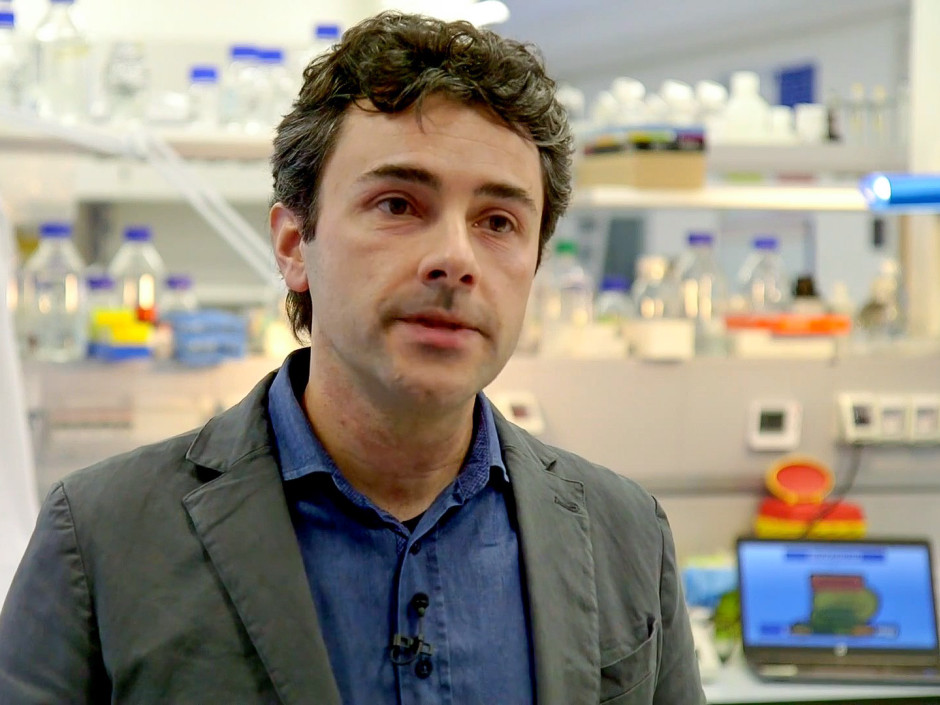Kidney Failure: Study discovers a variety of new risk genes
An international research consortium led by Eurac Research has identified 147 gene regions, that affect Kidney function. The study has just been published in Nature Genetics.
In the most comprehensive and detailed study of kidney genetics so far, an international research consortium led by Eurac Research and the University of Freiburg, analysed the genetic makeup of over one million people. The scientists identified 147 gene regions which influence kidney function and for many of these regions they have isolated the specific gene involved. This study has helped to elucidate the mechanisms that control renal function enabling the assessment of risk factors that result in hereditary chronic renal failure. The study involved more than 300 researchers from 25 countries and the results were published last Friday in the renowned journal Nature Genetics.
Chronic renal failure affects more than 5 per cent of the population. The deterioration of renal function is irreversible: a specific treatment does not yet exist as scientist do not know which genes to target in order to develop an effective drug. What genetic factors influence the kidney function and in what ways are, therefore, fundamental research questions. The scientists from the CKDGen (Chronic Kidney Disease Genetics) Consortium thus set out to explore the relationship between genetic material and two important parameters for assessing kidney function: the glomerular filtration rate – a measure of the speed with which kidney filters metabolic products from the bloodstream – and the blood urea. Data from over one million people made it possible to identify 147 gene regions which control the function and development of the kidney.
With this result the research can now take the next step: build a gene registry to assess the risks of hereditary renal failure. Eurac Research’s Cristian Pattaro, an Epidemiologist and the study coordinator, explains, “There is still a long way to go, but with these indicators it will be possible to predict at birth a person’s genetic predisposition to chronic renal failure”. He notes that “when someone knows their genetic risk they can adjust their lifestyle accordingly and make sure to have regular medical checkups.”
In a closer analysis of the 147 gene regions identified, the researchers have isolated 27 genes with a particular influence on renal function. Pattaro explains, “these genes are potential targets for the development of effective medical therapies.”
The study is a collaboration of over 120 epidemiological studies from around the world. These studies are similar to Eurac Research’s CHRIS study in which over 13,000 people from Vinschgau, an area in South Tyrol, Northern Italy, participated. The scientists, for example, analysed data from studies such as the US ‘Million Veteran Program (300,000 participants) and large biobanks in Japan, Great Britain and Iceland. In the future, the researchers want to not only investigate the function of individual genes in more detail, but also to expand the reach of the population studies beyond Europe and Asia, in order to draw a truly global genetic map of the kidney.
Related Articles
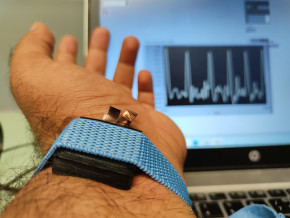
Tecno-prodotti. Creati nuovi sensori triboelettrici nel laboratorio di sensoristica al NOI Techpark
I wearable sono dispositivi ormai imprescindibili nel settore sanitario e sportivo: un mercato in crescita a livello globale che ha bisogno di fonti di energia alternative e sensori affidabili, economici e sostenibili. Il laboratorio Sensing Technologies Lab della Libera Università di Bolzano (unibz) al Parco Tecnologico NOI Techpark ha realizzato un prototipo di dispositivo indossabile autoalimentato che soddisfa tutti questi requisiti. Un progetto nato grazie alla collaborazione con il Center for Sensing Solutions di Eurac Research e l’Advanced Technology Institute dell’Università del Surrey.
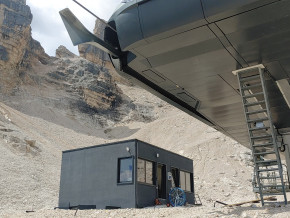
unibz forscht an technologischen Lösungen zur Erhaltung des Permafrostes in den Dolomiten
Wie kann brüchig gewordener Boden in den Dolomiten gekühlt und damit gesichert werden? Am Samstag, den 9. September fand in Cortina d'Ampezzo an der Bergstation der Sesselbahn Pian Ra Valles Bus Tofana die Präsentation des Projekts „Rescue Permafrost " statt. Ein Projekt, das in Zusammenarbeit mit Fachleuten für nachhaltiges Design, darunter einem Forschungsteam für Umweltphysik der unibz, entwickelt wurde. Das gemeinsame Ziel: das gefährliche Auftauen des Permafrosts zu verhindern, ein Phänomen, das aufgrund des globalen Klimawandels immer öfter auftritt. Die Freie Universität Bozen hat nun im Rahmen des Forschungsprojekts eine erste dynamische Analyse der Auswirkungen einer technologischen Lösung zur Kühlung der Bodentemperatur durchgeführt.
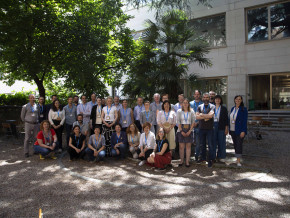
Gesunde Böden dank Partizipation der Bevölkerung: unibz koordiniert Citizen-Science-Projekt ECHO
Die Citizen-Science-Initiative „ECHO - Engaging Citizens in soil science: the road to Healthier Soils" zielt darauf ab, das Wissen und das Bewusstsein der EU-Bürger:innen für die Bodengesundheit über deren aktive Einbeziehung in das Projekt zu verbessern. Mit 16 Teilnehmern aus ganz Europa - 10 führenden Universitäten und Forschungszentren, 4 KMU und 2 Stiftungen - wird ECHO 16.500 Standorte in verschiedenen klimatischen und biogeografischen Regionen bewerten, um seine ehrgeizigen Ziele zu erreichen.
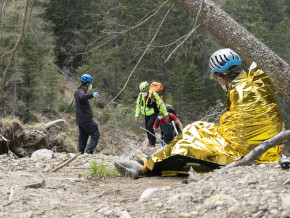
Erstversorgung: Drohnen machen den Unterschied
Die Ergebnisse einer Studie von Eurac Research und der Bergrettung Südtirol liegen vor.
